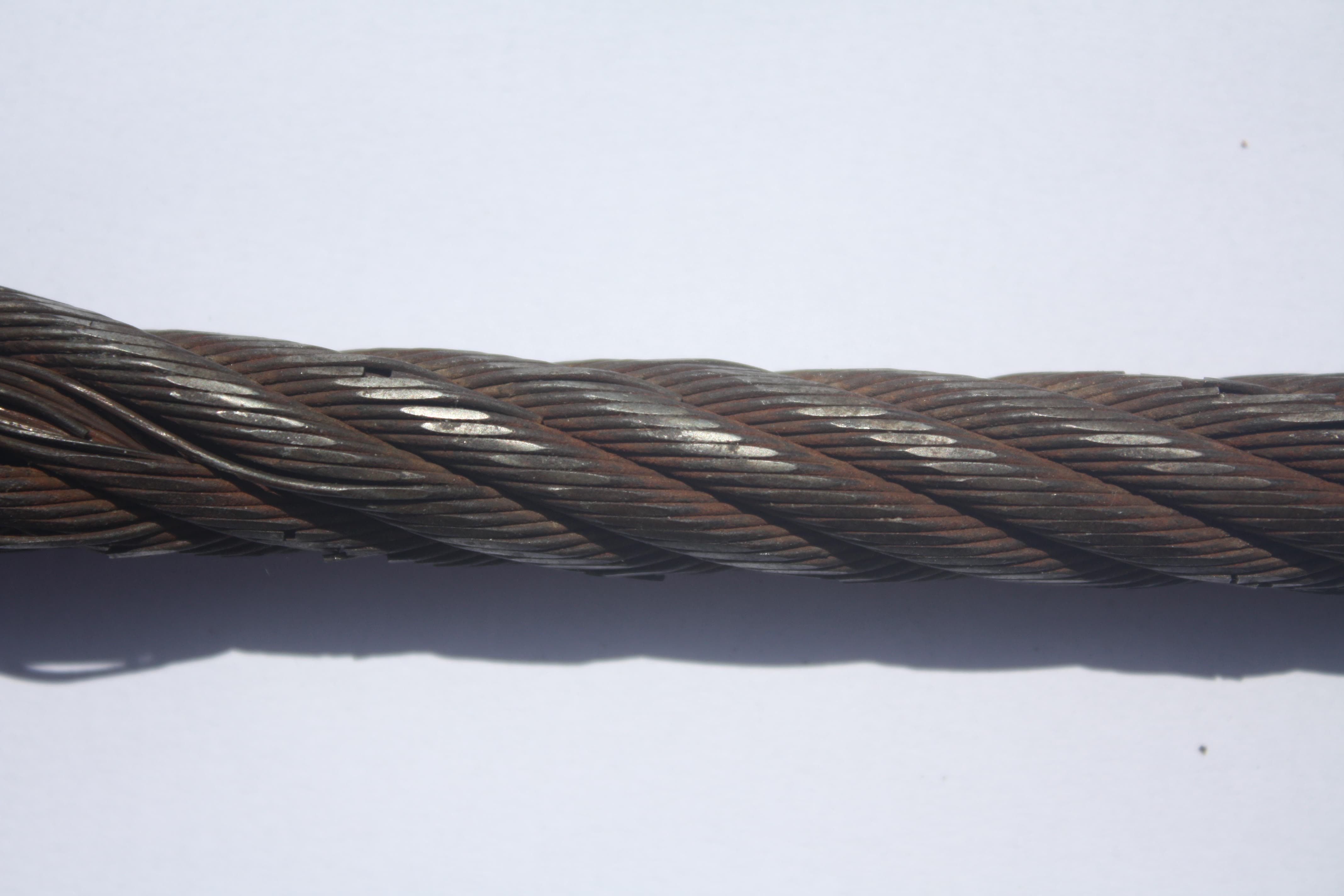Introduction
This article covers some common factors that may accelerate the progression of wear in wire rope. (For information on how to inspect wire rope for wear, click here)
The article finishes with a few recommendations to help prevent wear.

Wear in Wire Rope
Crane Design Factors
1. The size of the drum and sheaves
The smaller the D:d ratio (the size of sheave/drum compared to the rope diameter), the greater the pressure exerted on the surface of the rope. A reduced contact area causes increased pressure.
2. The number of sheaves
The more complicated the reeving, the more contact points exist with the rope. More contact points mean more wear.
3. Large fleet angles
The greater the fleet angle between the drum and sheave, the greater the pressure exerted on the rope.
4. Drum spooling arrangement
Multi-layer drum spooling causes much more wear than single-layer drum spooling. The accelerated wear is due to the increased rope to rope contact seen in multi-layered applications.

Mobile Cranes often use multi-layered drum spooling which can cause increased wear in wire rope.
Crane Usage
5. Condition of the drum, sheave(s) and guiding components
As sheaves wear, they begin to 'mirror' the rope in a process known as scrolling. Scrolling results in greater frictional forces between the rope and sheaves.
6. Rate of acceleration and speed of operation
The more aggressively hoisting is performed, the greater the forces of acceleration. Greater forces of acceleration lead to increased wear as the rope may distort under these conditions.
7. Incorrect Operation
Dragging the load or hoisting and traversing simultaneously at high speed can cause the rope to swing from side to side. Swinging leads to heavy side loads on the sheaves and drum grooves, causing wear.
Application
8. Inappropriate design load/factor of safety and duty Rating
Cranes are generally manufactured to a safety factor of 5:1 with the expectation that most operators will run at a smaller load the majority of the time. If the crane is frequently used at loads approaching this limit, there is a good chance a higher duty crane is required.
Recommendations
Purchasing
When purchasing a new crane, ensure the capacity is sufficient to cope with the work it will be performing. Not only will this extend rope life, but it will also reduce maintenance requirements and subsequent downtime.
Lubrication
Wire rope lubricant has two purposes; corrosion protection and friction reduction. A purpose-made wire rope lubricant applied periodically will dramatically improve service lives.
Tip: Translucent lubricant not only performs the functions above but also makes visual inspection significantly easier.
Operating Practices
A well trained, efficient crane operator can substantially increase rope lives leading to less wear on the rope as well as less damage.
Conclusion
Thanks for reading this far! This article has hopefully provided you with a few insights into the accelerating factors of wear in wire rope.
If you enjoyed the article, follow our LinkedIn page to keep up with our updates by clicking the follow button below!
Again, thanks for reading,
The Rope IQ team.
Want to find out how our software can help your business?
Request a quick 30 minute demo to find out.
Request a Demo